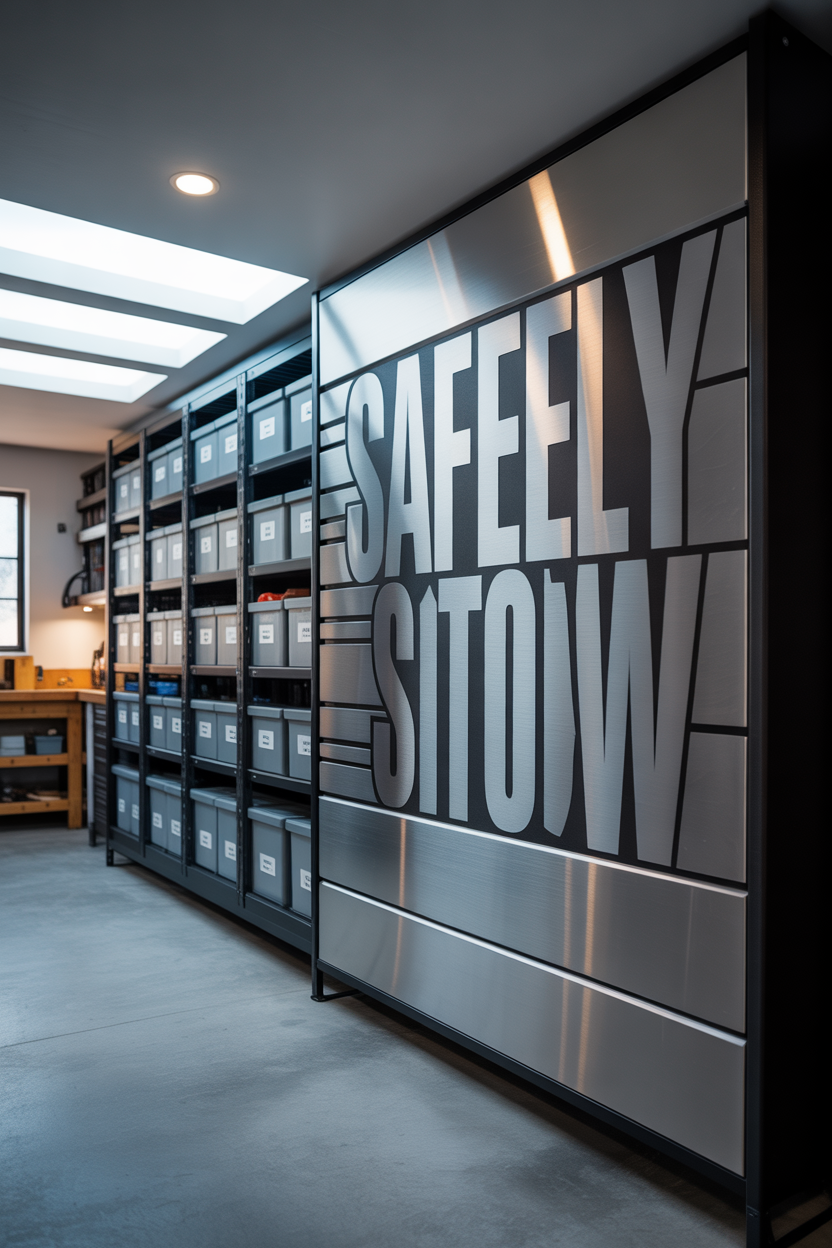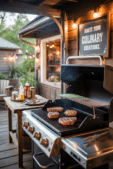Fuels and Flammables
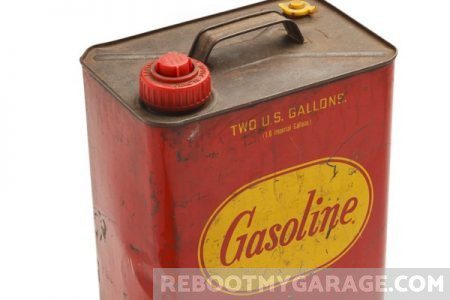
When I think back to my time growing up in the ‘burbs, I wonder how I survived. I actually set the lawn mower on fire once (not myself thankfully) because I was filling it up while it was running. My only concern was not letting my dad find out, not that I could have killed or maimed myself. Incidences like that can either put the fear of God in you or leave you with a bad case of feeling invulnerable. It turns out that the only thing that saved my life at the time was a little piece of screen called a flame arrester screen that prevents the fire from spreading back into the can and blowing up.
Lesson: Don’t cheap out on the gas can and don’t fill up the tank when the engine is hot or running.
Good quality gasoline cans should have the following safety features.
- a pressure release lid or valve
- flame arrester (that screen that probably saved my life)
- it should meet OSHA and NFPA standards for storing and handling flammable materials
- auto shutoff spout to prevent spilling and leaking
- it should be easy for you to pour and handle when it is full
- rust and corrosion resistant
Good quality fuel containers are not that expensive. This one from Eagle is great and will last you many years. Check it out on Amazon here.
It is a good idea to use different colored cans for different fuels such as kerosene and diesel or at least clearly label them. It is also good to remember that things such as paint thinner and solvents are very flammable and need to be stored safely. Keep them in their original containers and make sure all the warning labels and instructions are still on. Tape them back on if necessary.
In addition to using appropriate containers you should:
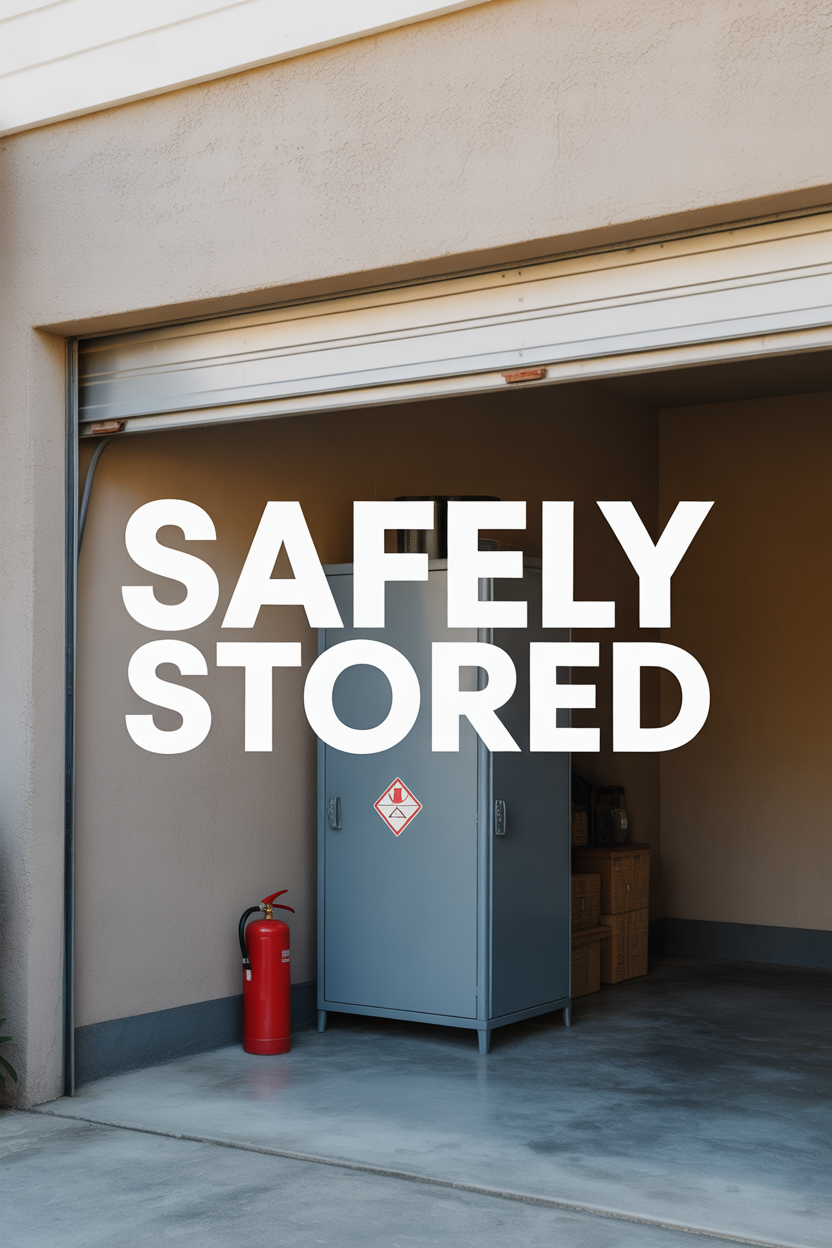
- Store them away from rags, newspapers, boxes and such
- Containers should be kept upright on a stable surface to prevent spilling
- Do not store next to accelerants such as fertilizer
- Best kept in a fireproof cabinet like this one
- Keep your gasoline and other flammables as far from the house as possible
- Gas cans and such should be on the ground so that they will not drop or drip onto other things
- Have some cheap kitty litter handy to absorb any spills before they become a problem
Weed killers, insecticides, cleaners and aerosol cans
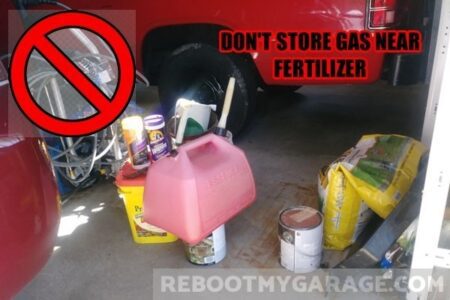
There’s more than one reason to keep toxins in a cabinet. Obviously, you want to keep these things out of the reach of children but you also want to prevent things from fall of shelves and creating problems. Wire shelving is the enemy of narrow cans!
Many of these chemicals irritate the skin an give off toxic fumes. If there is a leak or spill onto an absorbent rag it is possible to create a hazard that is hidden from view. Always be sure to clean your rags thoroughly after use or even dispose of them altogether if needed.
Use proper safety gear such as gloves and goggles and clean them properly after using them, especially when using them with toxins. Remember to properly store your protective gear so it will remain undamaged, easy to find and ready for use when you need it.
Keeping spray cans in a cabinet lets you find things easily when you need them and helps prevent corrosion. It also helps keep items away from each other. I prefer a locking cabinet that doesn’t corrode and is ventilated.
Killer Combinations: Things to Keep Away from Each Other
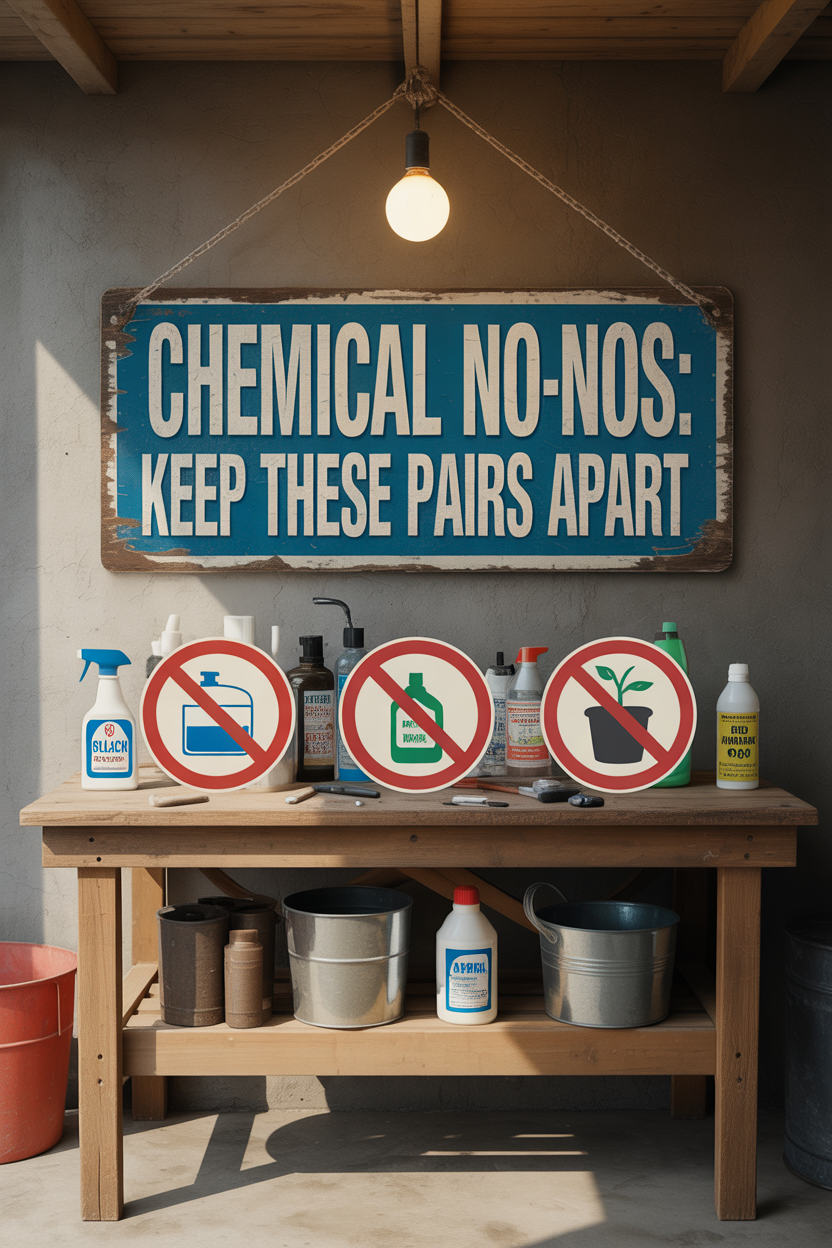
The most common cleaner and disinfectant is probably bleach. It is important that you never mix bleach or chlorine with:
- Ammonia
- Any kind of acid (vinegar, citric cleaners or many toilet bowl cleaners)
- Rubbing alcohol
- Drain de-cloggers
- Rust removers
If you mix it with hydrogen peroxide you will get a chemical reaction that creates a mild fizz or a violent overflowing depending on the concentrations and amounts. The combination, if created in a sealed container, might explode.
Fertilizer which usually contains nitrogen should be kept away from fuels as they will create an explosive combination.
Cleaning up toxic spills
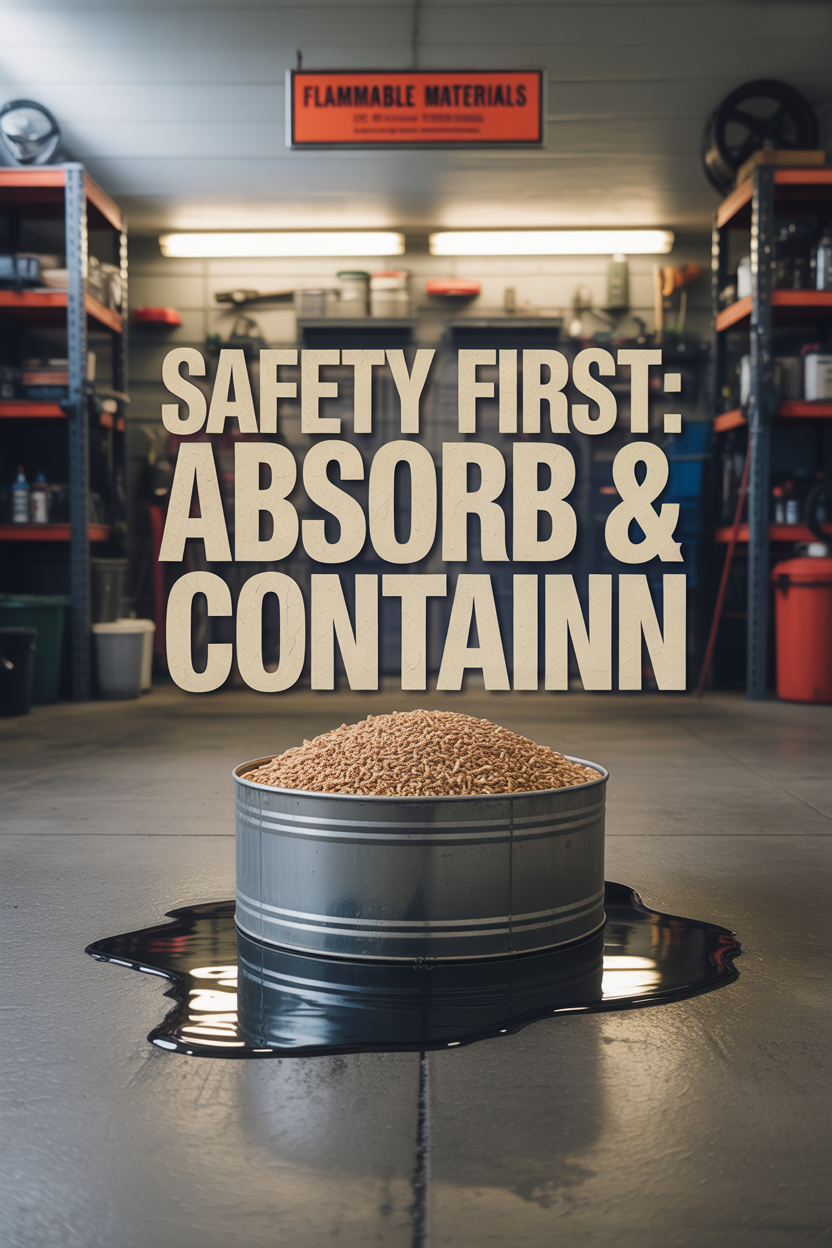
For most things like gasoline, oils and automotive fluids, pouring a good amount of kitty litter (the cheap stuff) is a great start. Make sure you use enough so there is no residual dampness after a few hours you can sweep it up and dispose of it properly. Be sure to use a flame retardant container such as a metal bin if you have absorbed flammable materials. This is a good one that won’t break the bank.
If you spilled some kind of strong acid (like a leaky car battery) be careful and wear good rubber gloves.
It is best to neutralize the spill with a paste of baking soda and water that you work into the stain with a plastic putty knife. You can also pour on garden lime. Household ammonia also neutralizes acids. Remember acid reacts with metal and can eat through it after a time.
Acids can harm your garage floor so deal with these kinds of spills promptly.
Dispose of the things you don’t need or won’t use for some time

Do you have old vehicle batteries hanging around? As your local service station where you can get rid of them. There is no need to have them around and they will eventually corrode and leak and cause damage to your garage floor.
Old insecticides or weed killers in rusty cans? Get rid of them as well. Check expiration dates and remove old stuff, and in the future only buy what you need for a particular project. It is a false economy to overbuy. If what you need costs $10 and 3x what you need costs $15 you are wasting $5 by buying the larger quantity. If you buy a concentrate only mix up what you need for a project.
Conclusion
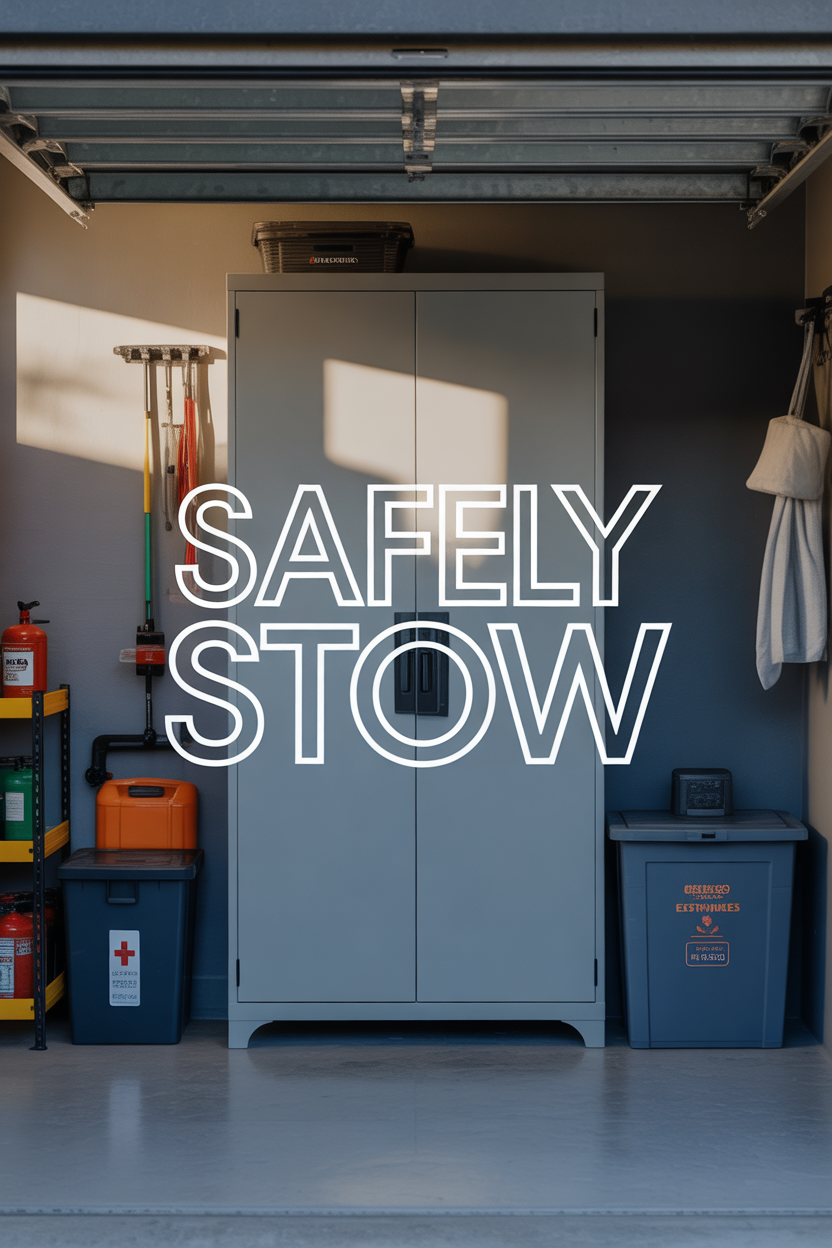
Have a dedicated area for your toxins and hazardous materials and be sure to store them in the original container. This lets people know what is in the container and how to handle them safely. Keep flammables as far from the house as possible and be aware of lethal combinations. Avoid creating dangerous clutter and dispose of dead batteries and other dangerous items.


